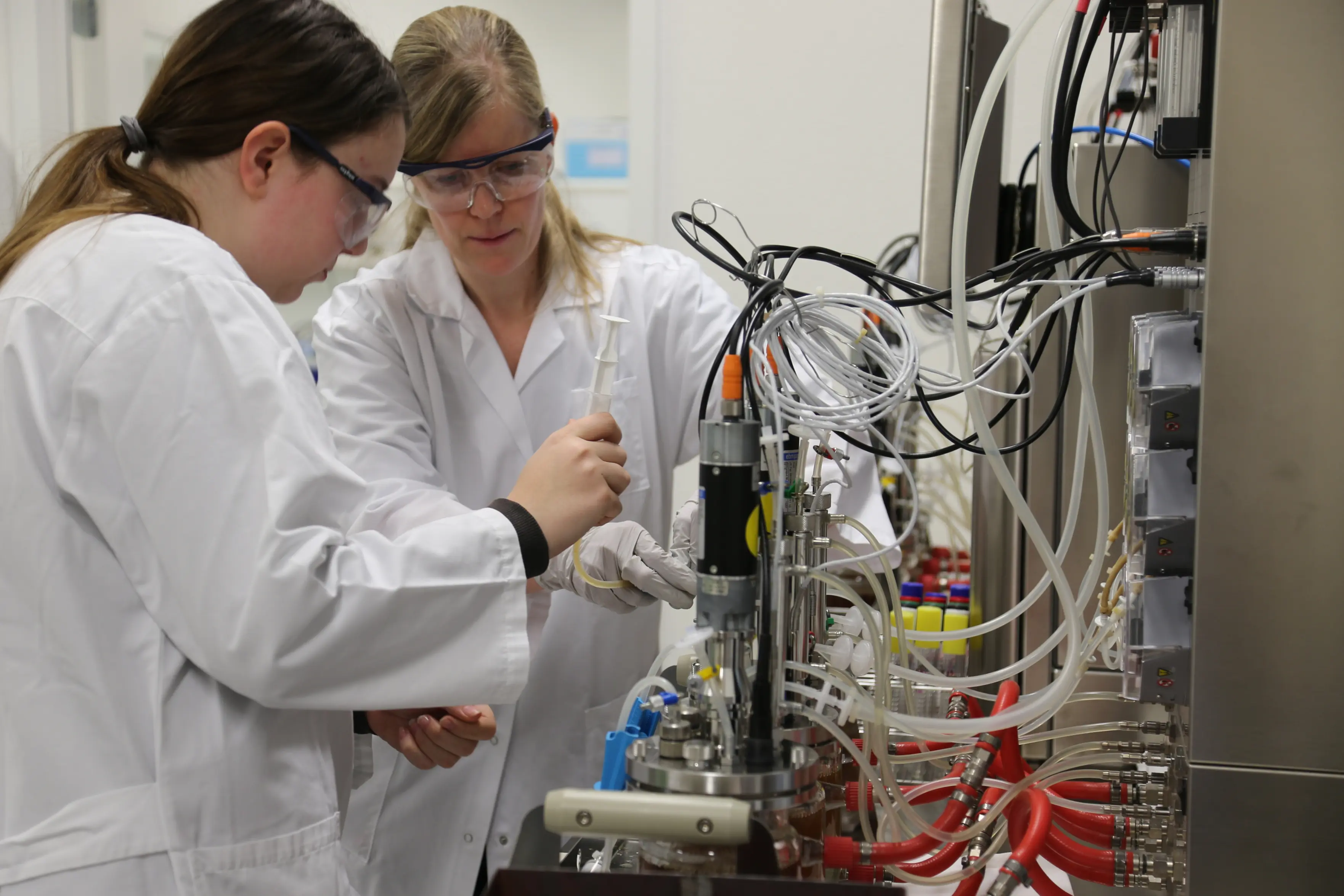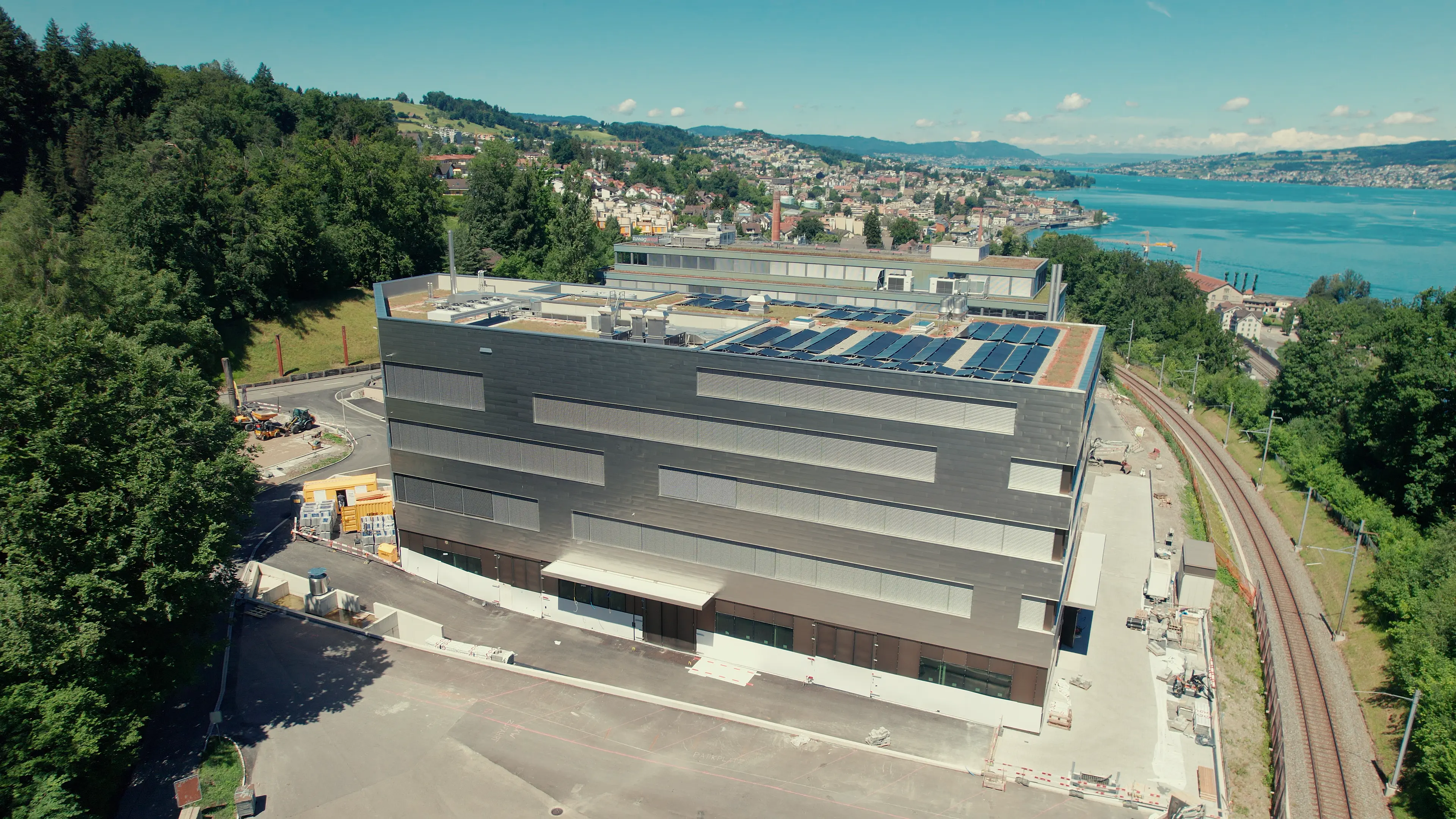Researching Together for a Healthy Diet
Agroscope and Zurich University of Applied Sciences ZHAW are stepping up their cooperation in food research and have signed a memorandum of understanding. The aim is to conduct joint and complementary research on good nutrition. Both partners will bring different strengths to this cooperation.
For many years now, Agroscope and the ZHAW Department of Life Sciences and Facility Management have collaborated in a neighbourly fashion on the Wädenswil (Canton of Zurich) site. In 2021 a first exchange took place to discuss both organisations’ competencies in systems research for good nutrition. The memorandum of understanding will serve to step up their strategic research cooperation in the food sector.
Closing loops
The aim of both partners is to make a research contribution to a regenerative agri-food ecosystem. By this is meant a food system that functions in a closed circuit and e.g. uses by-products from food production such as the whey from cheesemaking or the bran from the production of white flour. Agroscope and ZHAW ideally complement one another in their research in this field: Agroscope researches extensively in primary production and the initial processing stage, while the ZHAW’s main strengths lie in the later stages of processing and in packaging research. By joining forces, both partners also hope for greater success in tapping potential funding sources such as Innosuisse or the Swiss National Science Foundation.
Old methods rediscovered
Among other things, the planned projects will provide the food sector with answers and solutions to questions concerning fermented foods (‘food fermentation science’). This millennia-old natural method of food preservation is currently being rediscovered with the aim of manufacturing healthy, safe and palatable foods. “This ranges from classic fermentation to the development of functional cultures with additional benefits for the food sector all the way to innovative cell-culture technology” says Michael Kleinert, Head of the Institute for Food and Drink Innovation at the ZHAW in Wädenswil. Systems research also encompasses the influence of a sustainable and healthy diet on consumers. “In fermented foods research, the focus is also on the positive influence of these foods on the gut microbiome, and hence on gut health” adds Fabian Wahl, Head of the ‘Food Microbial Systems’ Research Division at Agroscope.
Increasing knowledge, protecting resources
This sort of research collaboration also nurtures young talent. Both undergraduates and PhD students from partner universities can deepen their knowledge in a specialist area at both institutions, thereby improving their position on the labour market for future jobs. Resources are saved by the efficient shared use of infrastructure, whether at the new ‘Future of Food’ campus at the ZHAW in Wädenswil or at the Agroscope campus in Posieux currently under construction. It also helps avoid duplications in the research hub that is Switzerland. The memorandum of understanding additionally governs the handling of publications, rights and patents.
Downloads
- Press release «Researching Together for a Healthy Diet»(PDF 121,0 KB)
- Medienmitteilung «Gemeinsam für gesunde Ernährung forschen»(PDF 168,1 KB)
- Communiqué de presse «Recherche commune pour une alimentation saine»(PDF 174,6 KB)
- Comunicato stampa «Fare ricerca insieme per un’alimentazione sana»(PDF 170,1 KB)
- Picture 1: Agroscope researches for healthy food. © Agroscope/Oliver Bloch
- Picture 2: The new «Future of Food» campus at the ZHAW in Wädenswil will be inaugurated in autumn 2023. © ZHAW
Contacts
- Marc Andrey, Head of Communication Agroscope, marc.andrey@agroscope.admin.ch
- Birgit Camenisch, Head of Communication, ZHAW Department of Life Sciences and Facility Management, cabi@zhaw.ch

